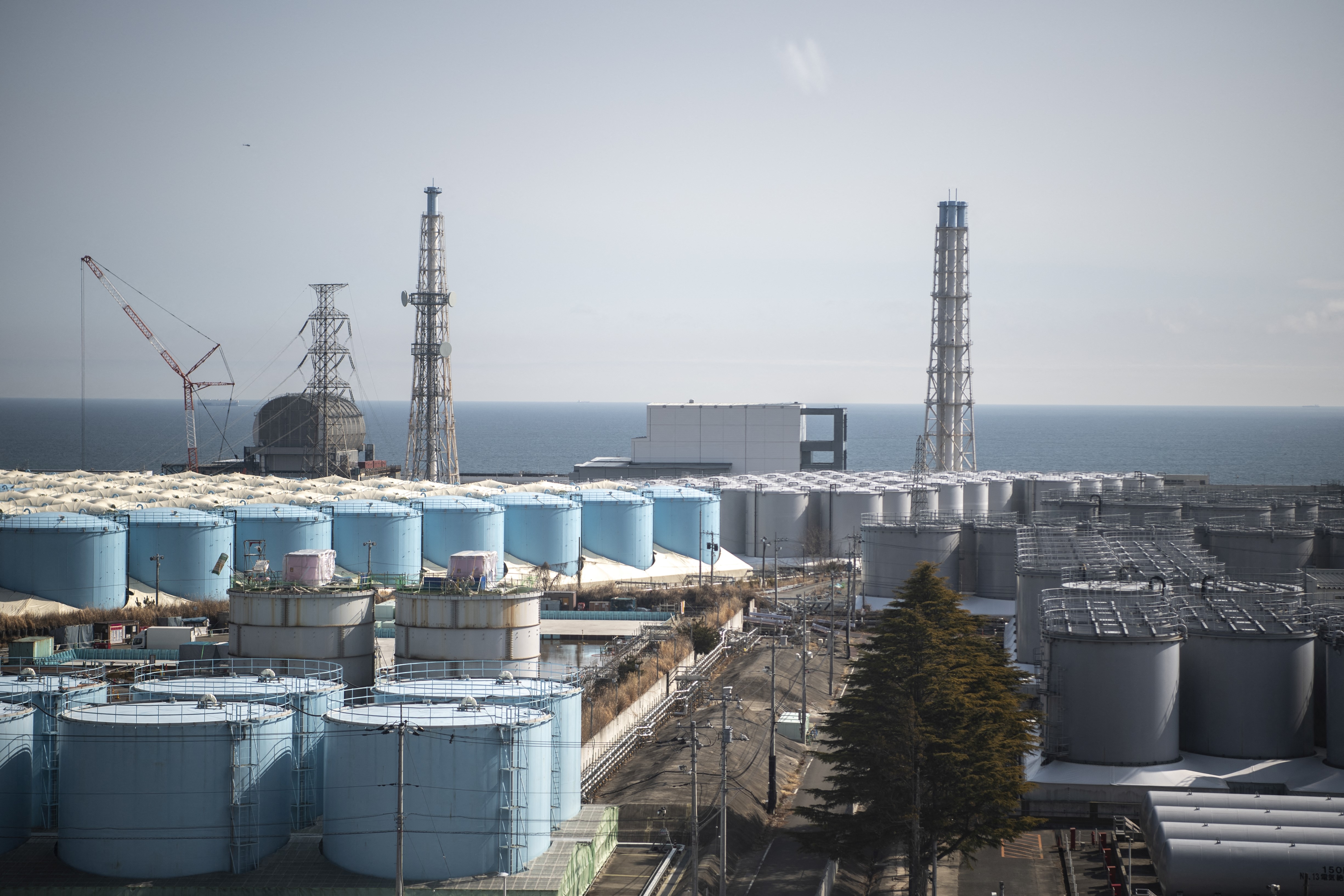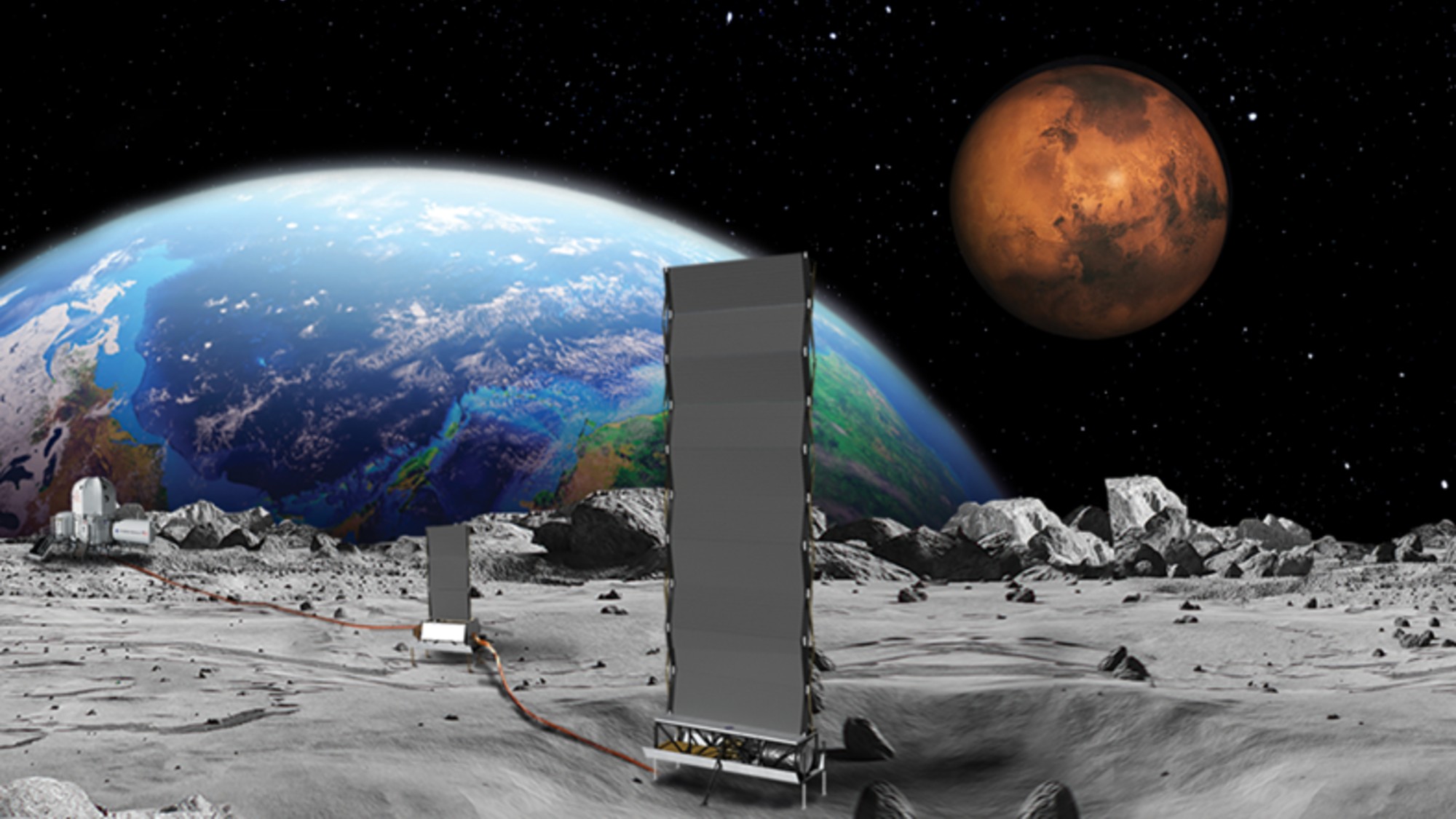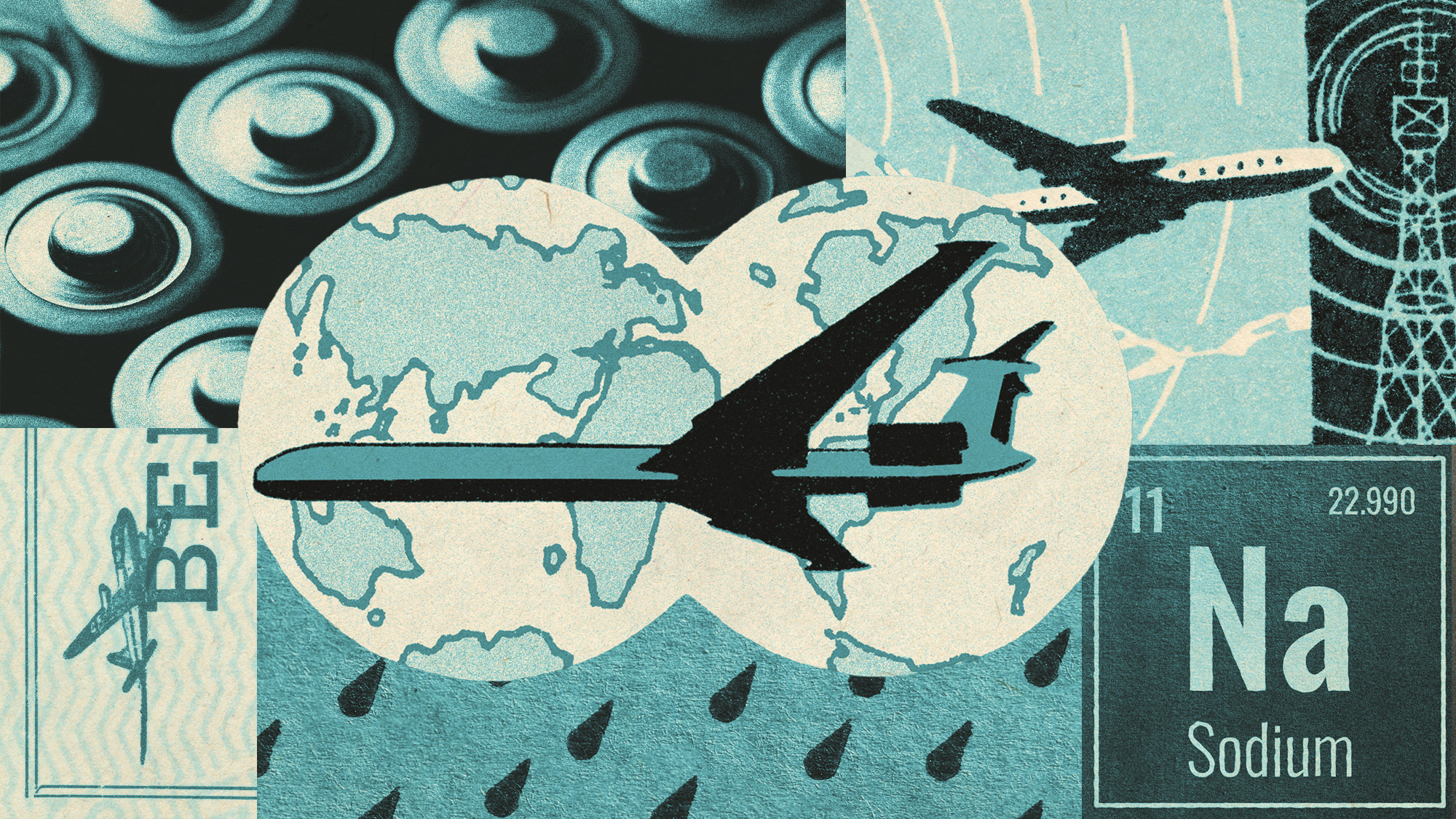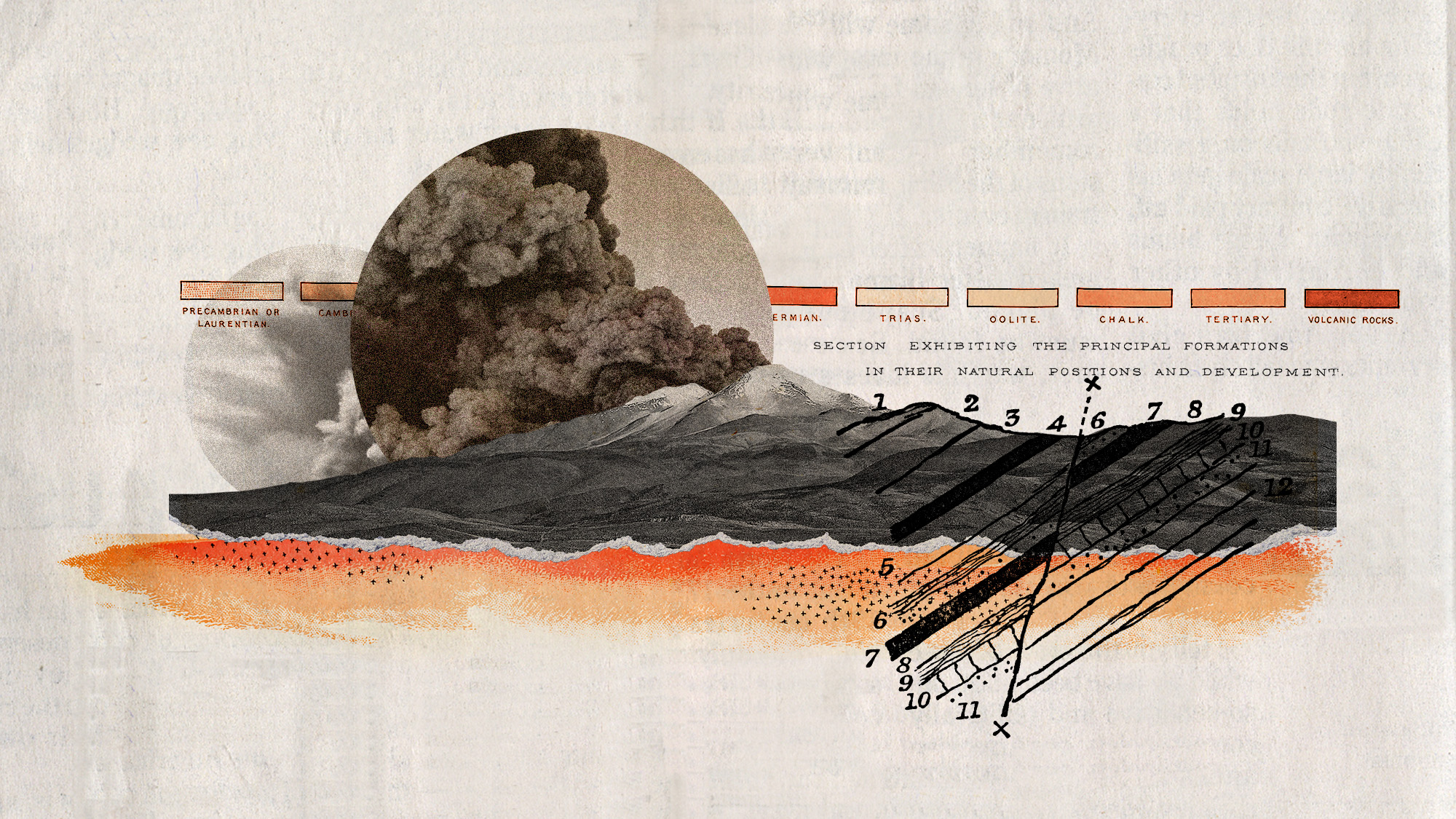Japan's controversial decision to release radioactive wastewater into the Pacific
Japan plans to dump nuclear wastewater into the ocean with the disapproval of many


A free daily email with the biggest news stories of the day – and the best features from TheWeek.com
You are now subscribed
Your newsletter sign-up was successful
Japan is set to dump over one million cubic meters of treated wastewater from the Fukushima nuclear power plant into the Pacific Ocean. The plan was initially conceived in 2019 when the country's environment minister declared there were "no other options" to handle the growing amount of waste, per CNN, and has since gained the approval of United Nations International Atomic Energy Agency (IAEA) chief Rafael Mariano Grossi. However, the decision is hotly contested, especially among local fishing organizations, and has also faced disapproval from China and other surrounding islands.
What is the plan?
Japan is running out of space for the contaminated water it uses to cool down nuclear reactors. Currently, the waste is stored in over 1,000 giant tanks, but the country is struggling with what to do as the space shrinks and the water grows. Japan's solution was to dispel large quantities of it into the Pacific Ocean, "in line with international practice," said Grossi following the plan's announcement.
The company that built the tanks, Tokyo Electric Power Company (TEPCO), said there is no option to build new tanks and the water needs to be removed in the process of decommissioning the plant. However, the water will be treated to remove many of the harmful elements before it's sent through an undersea tunnel, according to the TEPCO plan. The process is known as an advanced liquid-processing system (ALPS). The IAEA released a report assessing the plan, writing that it will have "negligible radiological impact on people and the environment."
The Week
Escape your echo chamber. Get the facts behind the news, plus analysis from multiple perspectives.

Sign up for The Week's Free Newsletters
From our morning news briefing to a weekly Good News Newsletter, get the best of The Week delivered directly to your inbox.
From our morning news briefing to a weekly Good News Newsletter, get the best of The Week delivered directly to your inbox.
Despite getting the green light from the U.N., there has been heavy opposition.
Why is the plan controversial?
There is some risk in any radioactive material exposure. While the ALPS process does a decent job of removing many of the contaminants, two notable ones, carbon-14 and tritium, remain even after, according to an article in Nature. The biggest concern is that these materials will affect marine life, specifically fish. The U.S. National Association of Marine Laboratories opposed the wastewater release, citing "a lack of adequate and accurate scientific data supporting Japan's assertion of safety." Pollutants like these can become more prominent going up the food chain through a process called bioaccumulation. Marine life is already facing other challenges like extreme warming and environmental stressors.
Despite the concerns, TEPCO reiterated that it is certain the contaminants won't continually accumulate in marine life over time, adding that they "do not exceed the concentrations in the living environment." Jim Smith, an environmental scientist at the University of Portsmouth, told Nature that the risk to surrounding islands is "close to zero," and "The nearest Pacific island is about 2,000 kilometers away."
"Have the people promoting this ... demonstrated to our satisfaction that it will be safe for ocean health and human health?" asked marine biologist Robert Richmond in Nature. "The answer is 'no'."
A free daily email with the biggest news stories of the day – and the best features from TheWeek.com
On top of all this, the plan comes 12 years after the Fukushima nuclear disaster, which still affects many in the surrounding area to this day.
What is the Fukushima nuclear disaster?
In 2011, Japan experienced a 9.0 magnitude earthquake that wreaked havoc over the island. Detecting the earthquake, the Fukushima nuclear plant shut down its reactors, but they still remained hot, so emergency diesel generators turned on to keep circulating coolant around the reactors, BBC explained.
However, the earthquake also triggered a massive tsunami with a wave height of almost 50 feet. The wave ended up flooding the plant and stopping the emergency generators. As a result, the cores overheated and melted in parts. This also triggered a number of explosions at the plant, leaking radioactive material into the air as well as into the Pacific Ocean. The disaster caused 150,000 people to be evacuated fearing the long-term impacts of radiation exposure. Several people died during the evacuation. The Japanese Parliament deemed Fukushima "a profoundly man-made disaster" and the IAEA categorized it as a level seven event, the same classification as the Chernobyl disaster.
Ten years after the disaster, the U.N. reported that there had been "no adverse health effects" documented, however, the Japanese government said that one worker did die from radiation exposure in 2018. A 2012 study also found that bluefin tuna from Fukushima had carried radioactive isotopes from the disaster to California. This event looms large in the minds of many who are now wary of further radiation exposure in the area.
What are the reactions?
"The Pacific Ocean is not Japan's sewer for discharging its nuclear-contaminated water," said a Chinese official in March, according to CNN. China has been openly vocal in its disapproval of the release plan. It's "neither ethical nor lawful to spill the risk of nuclear contamination to the rest of the world," Chinese Foreign Ministry spokesperson Wang Wenbin remarked, per Bloomberg.
A recent study also found that 84% of South Koreans oppose the plan as well. As a result, many Koreans have been bulk-buying sea salt in fear of health risks that could come following the release, NPR reported. "With a long rainy season during the spring, there has been growing anxiety among producers," said South Korea's Ministry of Oceans and Fisheries last month. In a similar spirit, Japan's fishery association chief told government officials "to remember that the treated water plan was pushed forward despite our opposition," per The Associated Press.
The Secretary General of the Pacific Islands Forum called the release a "major concern" in an op-ed, arguing a decision around any ocean release "is not and should not only be a domestic matter for Japan."
On the other hand, argued environmental scientist Smith, "the risk of another earthquake or a typhoon causing a leak of a tank is higher" than the risks posed by properly processed wastewater. "And they're running out of space."
Devika Rao has worked as a staff writer at The Week since 2022, covering science, the environment, climate and business. She previously worked as a policy associate for a nonprofit organization advocating for environmental action from a business perspective.
-
 Local elections 2026: where are they and who is expected to win?
Local elections 2026: where are they and who is expected to win?The Explainer Labour is braced for heavy losses and U-turn on postponing some council elections hasn’t helped the party’s prospects
-
 6 of the world’s most accessible destinations
6 of the world’s most accessible destinationsThe Week Recommends Experience all of Berlin, Singapore and Sydney
-
 How the FCC’s ‘equal time’ rule works
How the FCC’s ‘equal time’ rule worksIn the Spotlight The law is at the heart of the Colbert-CBS conflict
-
 The world’s oldest rock art paints a picture of human migration
The world’s oldest rock art paints a picture of human migrationUnder the Radar The art is believed to be over 67,000 years old
-
 Why scientists are attempting nuclear fusion
Why scientists are attempting nuclear fusionThe Explainer Harnessing the reaction that powers the stars could offer a potentially unlimited source of carbon-free energy, and the race is hotting up
-
 Canyons under the Antarctic have deep impacts
Canyons under the Antarctic have deep impactsUnder the radar Submarine canyons could be affecting the climate more than previously thought
-
 Why does the US want to put nuclear reactors on the moon?
Why does the US want to put nuclear reactors on the moon?Today's Big Question The plans come as NASA is facing significant budget cuts
-
 What would happen to Earth if humans went extinct?
What would happen to Earth if humans went extinct?The Explainer Human extinction could potentially give rise to new species and climates
-
 New York plans first nuclear plant in 36 years
New York plans first nuclear plant in 36 yearsSpeed Read The plant, to be constructed somewhere in upstate New York, will produce enough energy to power a million homes
-
 Sodium batteries could make electric flight viable
Sodium batteries could make electric flight viableUnder the Radar Low-cost fuel cell has higher energy density and produces chemical by-product that could absorb CO2 from the atmosphere
-
 A zombie volcano is coming back to life, but there is no need to worry just yet
A zombie volcano is coming back to life, but there is no need to worry just yetUnder the radar Uturuncu's seismic activity is the result of a hydrothermal system
